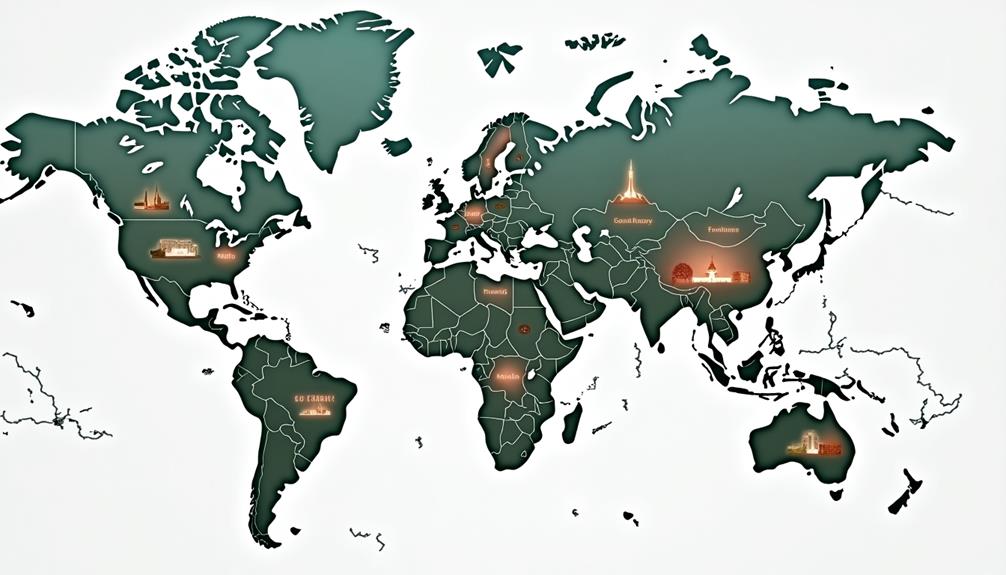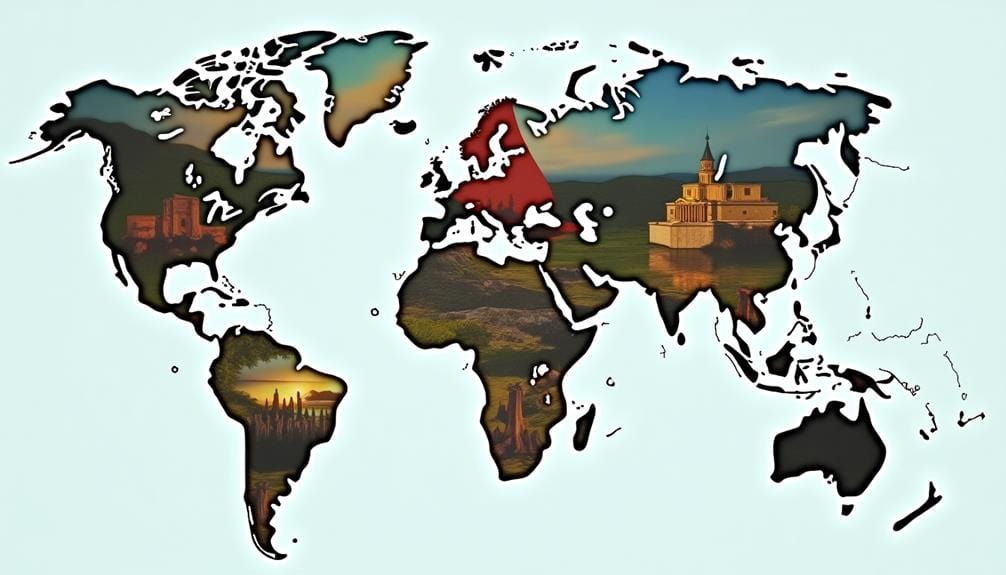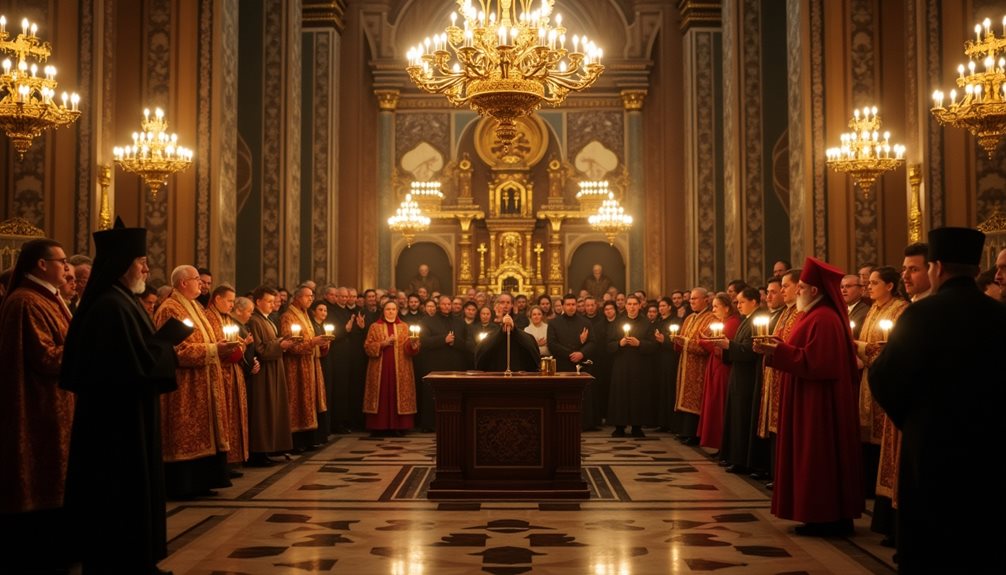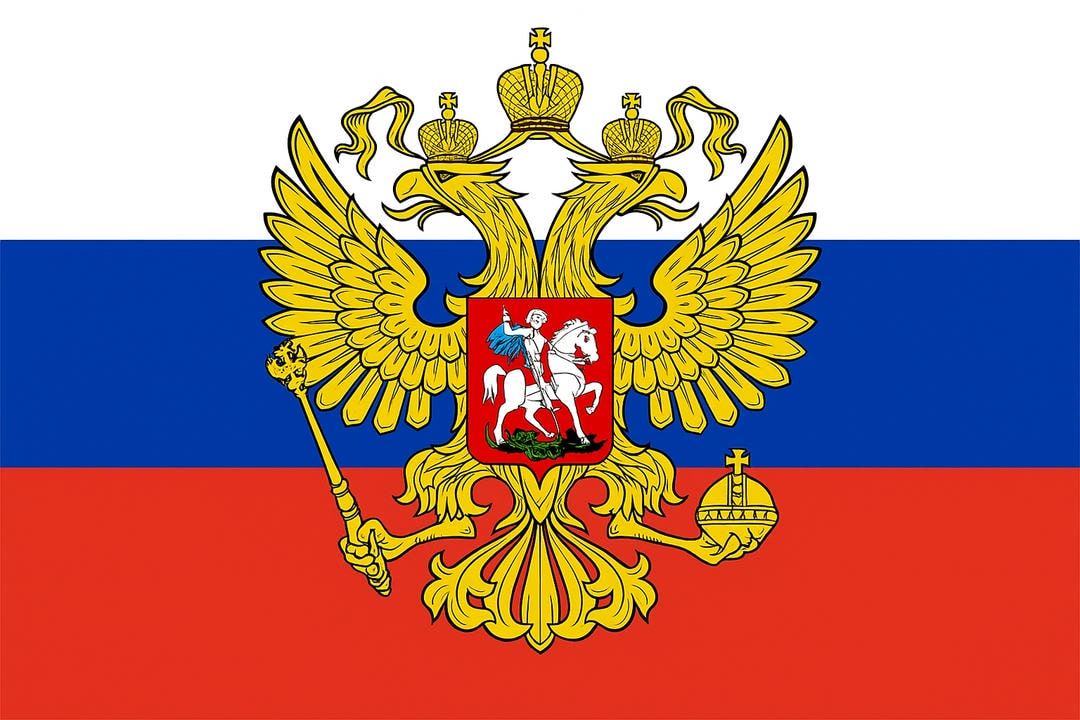The Russian language, owing to its historical and cultural significance, spans beyond the borders of its native Russia, resonating in various regions across the globe. Ukraine, Kazakhstan, and Belarus, with their deep-rooted ties to Russia, have substantial Russian-speaking populations, some even recognizing it as an official language. Post-Soviet migration has further extended its reach to countries like Israel and Germany. With such a wide distribution, understanding the top 10 countries where Russian is spoken not only illuminates its global influence but also reveals fascinating insights into migration patterns and historical connections. Curious to discover which other nations make the list?
Brief overview of the significance of the Russian language globally.

Historically, Russian has played a pivotal role in the dissemination of knowledge and political ideas, particularly during the Soviet era, when it was promoted as the lingua franca across numerous republics.
Language preservation in post-Soviet states has become a vital issue, with efforts to maintain Russian alongside national languages. This preservation is often seen as a means of sustaining cultural ties and historical connections.
Migration patterns, particularly following the collapse of the Soviet Union, have resulted in substantial Russian-speaking communities worldwide, especially in countries like Israel and Germany. These diasporas contribute to the ongoing relevance of Russian in global contexts.
Look at the chart below of the top Russian speaking countries by population.
Cultural exchange facilitated by the Russian language continues to be significant, with literature, cinema, and scientific discourse benefiting from this shared linguistic heritage.
In addition, Russian remains an essential tool for international diplomacy and business, underlining its role in global communication. Consequently, the Russian language’s global significance is underscored by its widespread influence, ongoing preservation efforts, and the dynamic exchanges it fosters.
Top 10 Countries Where Russian is Spoken
The influence of the Russian language extends beyond Russia’s borders, shaping the linguistic landscapes of several countries. In Ukraine, Russian dialect variations reflect the deep cultural language influence from the Soviet era, with 32% of the population speaking Russian.
Kazakhstan, where Russian holds co-official status with Kazakh, sees approximately 20% of its residents using Russian for Post Soviet Communication. Belarus showcases a significant cultural language influence, with 70% of its population fluent in Russian, reflecting its dual official status with Belarusian.
Kyrgyzstan also maintains Russian as an official language, with 9% of its citizens speaking it, highlighting its role in government and business.
In Latvia and Estonia, Russian language education continues to influence around 33% and 27% of their populations, respectively, a legacy from the Soviet period. Uzbekistan, with 15% Russian speakers, demonstrates the language’s role in urban areas and diverse ethnic communities.
Migration language trends become evident in Israel, where about 11% of the population speaks Russian due to immigration waves from the former Soviet Union. Germany, with around 3% Russian speakers, reflects post-Soviet migration patterns.
These countries collectively illustrate the widespread reach and enduring impact of the Russian language.
Importance of understanding where Russian is spoken and its historical context.

Understanding where Russian is spoken and its historical context is essential for comprehending the geopolitical and cultural dynamics of Eastern Europe and Central Asia. The Russian language serves as a marker of cultural identity and has historically been a tool for geopolitical influence, particularly during the Soviet era, when Russian was promoted as the lingua franca across its republics.
| Country | Percentage of Russian Speakers |
|---|---|
| Russia | 82% |
| Ukraine | 32% |
| Kazakhstan | 20% |
The legacy of the Soviet Union continues to impact language preservation efforts and educational initiatives in these regions. For instance, Kazakhstan maintains Russian as a co-official language to facilitate interethnic communication, while Ukraine experiences regional variations in Russian use, reflecting complex migration patterns and historical ties.
In addition, countries like Israel and Germany host significant Russian-speaking communities due to migration waves following the Soviet Union’s dissolution. This phenomenon underscores the importance of understanding migration patterns in the context of language retention and community formation.
Analyzing these facets enables a deeper appreciation of how Russian sustains its relevance and influence beyond its native borders, contributing to ongoing cultural and educational exchanges. Consequently, understanding the historical context of where Russian is spoken enriches our grasp of its enduring geopolitical and cultural significance.
How the Russian Language has evolved over history
Examining the historical spread of Russian across various countries provides a backdrop to understand its linguistic evolution. The Russian language’s journey from its early Slavic roots to its current global presence is marked by significant milestones.
Initially, Russian dialects diversified as they migrated across the vast Eurasian landscape, influenced by interactions with neighboring languages and cultures.
The Soviet legacy played a vital role in standardizing Russian, promoting it as the lingua franca across the Soviet Union. This era saw the imposition of Russian as the official language in various Soviet republics, leading to its widespread adoption.
Language migration further propelled Russian beyond Soviet borders, as waves of emigration during and post-Soviet times introduced Russian-speaking communities to new regions such as Israel and Germany.
Cultural influence, too, has been a potent force in the linguistic evolution of Russian. Literature, cinema, and education have perpetuated the language’s prestige, facilitating its retention and growth.
Today, Russian continues to adapt, incorporating elements from other languages and evolving alongside contemporary cultural and technological changes. Understanding the historical spread and development of Russian enables us to appreciate its complex and dynamic nature.




